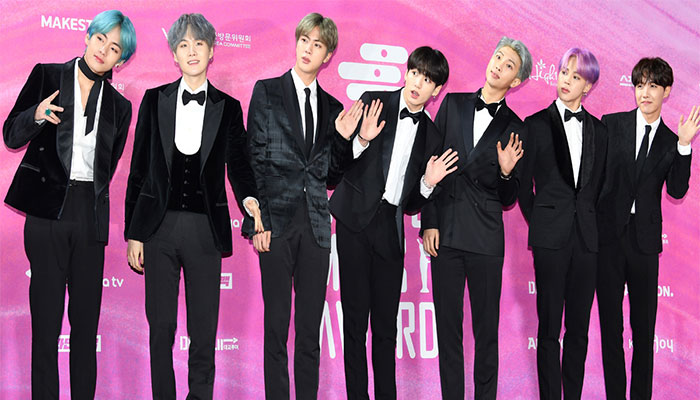Parasite is a genre-bending thriller, a social commentary that is also very funny at the same time. Winning Best Picture at this year’s Oscars shows that fans of Korean popular culture are no longer just a niche, fringe group.

This film has captured the pervading zeitgeist about the widening gulf between the extreme rich and the extreme poor in the 21st century. While it takes place in Seoul and is very Korean in its nature, it addresses a universal theme in an innovative comedy that cleverly morphs into horror.
This Academy Award win is the latest example of success and recognition for Korean popular culture, which includes not just film but K-pop music and webcomics. Parasite’s director Bong Joon Ho already has cult status for his films The Host, Snowpiercer and Okja.
Before the Oscars, Parasite won best foreign film at the BAFTAs and Palme D’Or at Cannes. K-Pop band BTS topped the ARIAS and while taking out many international awards it was snubbed at the recent Grammys.
It is the story of two families; one very wealthy and the other extremely poor. The narrative examines social inequality in Seoul but also globally and the increasing gap between the haves and have nots.
Over the last decade, my research with K-Pop fans in Australia, Japan and most recently the Philippines shows that fans are attracted to Korean culture because they are tired of the ‘same old, same old’ self-congratulatory Hollywood output.
They consider themselves cosmopolitan consumers. They seek something different. They feel that because we live in a world that is increasingly connected, we shouldn't be looking to Hollywood or America as the only sites where popular culture can be produced, while other sites such as Seoul are beginning to emerge.
- Do you know BTS? K-Pop superstars reveal Aussie love affair with Korean culture
- Let's get this bread: how teenagers change language
South Korean popular culture leaders have strategically positioned themselves as an alternative through innovation tied into youth culture. They are interested in pushing boundaries and responding to current global trends.
Parasite achieves all of this. It is the story of two families; one very wealthy and the other extremely poor. The narrative examines social inequality in Seoul but also globally and the increasing gap between the haves and have nots.
Through a serendipitous series of events, the poor family starts living off the rich family - even living in their home. They are the ‘parasite’. But at the same time, the wealthy family has a number of issues: their daughter is mentally unstable and they become connected to each other, eventually leading to confusion and murder.

BTS supergroup: In Australia, the growth of K-pop has led to an increase in enrolments in Korean language classes with K-pop fans meeting to practice Korean language skills with Koreans who are visiting Australia to improve their English, says Baudinette. Image credit: Wikimedia Commons
Many fans of Korean culture are celebrating Parasite’s win as a redress and recognition that it’s become deservedly mainstream. While you might stereotypically imagine a fan of K-pop to be a screaming teenage girl, there are fan groups who are ‘mums for K-pop’ and even ‘K-pop grannies’. It’s also popular among the LGBTQI+ community.
The Academy Award accolades are not just about Korea itself but a recognition that there are different spaces outside the so-called, dominant ‘Western culture’ that allow for creative expression.
K-pop, for example, which has a highly stylised aesthetic, is an outlet for fans to channel their feelings of disillusionment and exclusion from the dominant Western culture. Now the world is catching up, these K-pop fans have an empowering sense of pride.
- Dr Tom Baudinette is a lecturer in the Department of International Studies Languages and Cultures.



